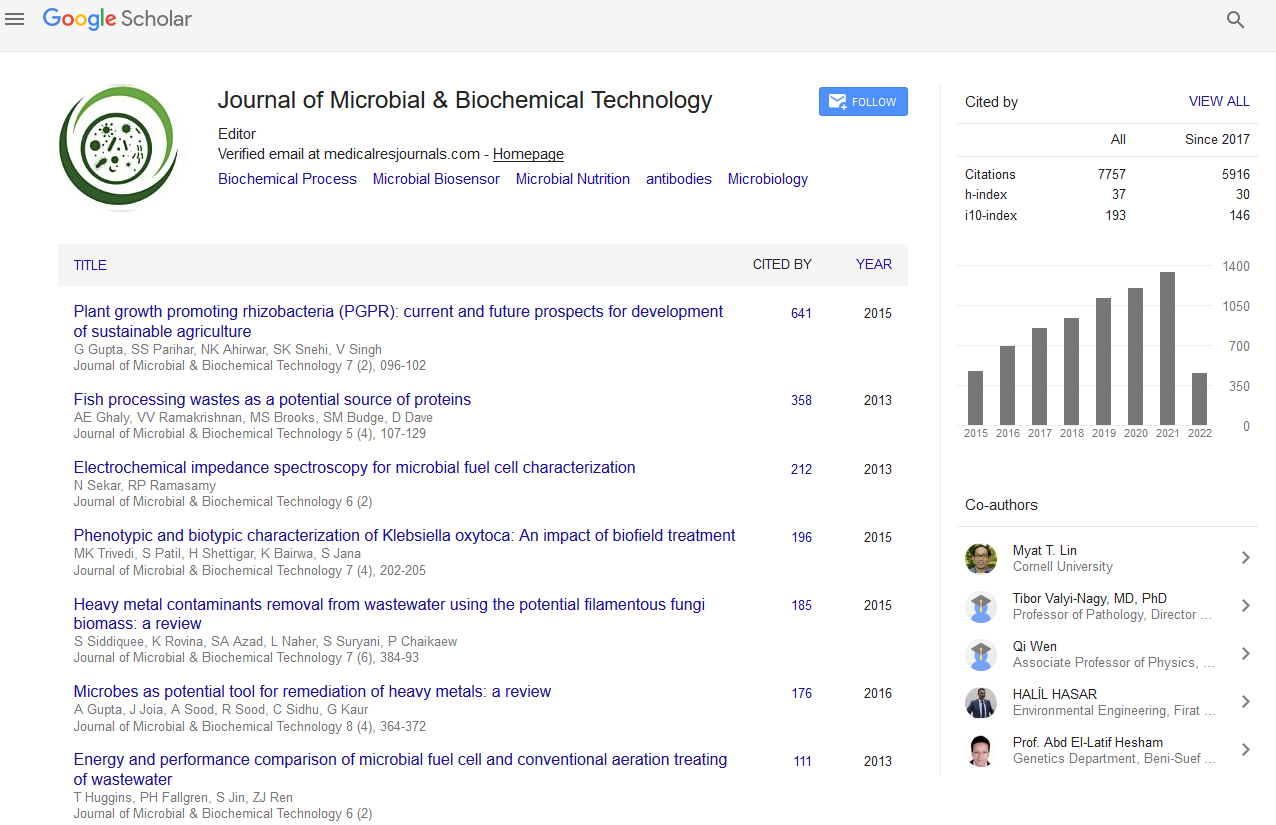PMC/PubMed Indexed Articles
Indexed In
- Academic Journals Database
- Genamics JournalSeek
- Academic Keys
- JournalTOCs
- China National Knowledge Infrastructure (CNKI)
- Scimago
- Access to Global Online Research in Agriculture (AGORA)
- Electronic Journals Library
- RefSeek
- Directory of Research Journal Indexing (DRJI)
- Hamdard University
- EBSCO A-Z
- OCLC- WorldCat
- SWB online catalog
- Virtual Library of Biology (vifabio)
- Publons
- MIAR
- University Grants Commission
- Geneva Foundation for Medical Education and Research
- Euro Pub
- Google Scholar
Useful Links
Share This Page
Journal Flyer

Open Access Journals
- Agri and Aquaculture
- Biochemistry
- Bioinformatics & Systems Biology
- Business & Management
- Chemistry
- Clinical Sciences
- Engineering
- Food & Nutrition
- General Science
- Genetics & Molecular Biology
- Immunology & Microbiology
- Medical Sciences
- Neuroscience & Psychology
- Nursing & Health Care
- Pharmaceutical Sciences
Abstract
Identification of Novel Hepatitis C Virus NS3-4A Protease Inhibitors by Virtual Screening Approach
Anish Kumar, Rashmi Gupta, Kanika Verma, Kshitija Iyer, Shanthi V and K Ramanathan
Hepatitis C Virus (HCV) is a leading cause of cirrhosis and liver cancer worldwide. The replication and viral polyprotein maturation of HCV crucially depends on the cleavage of the polyprotein precursor into 10 viral proteins. The NS3-4A serine protease cleaves the nonstructural region of the polyprotein at four out of five junctions, thus is a promising target for the development of antiviral inhibitors. There are many inhibitors of HCV NS3/4A protease in the clinical trial and improvement indicating significant reduction in the viral infection rate. However, most PIs develop resistance associated variants while treatment and are restricted to one or two HCV genotypes. The second generation PI, MK-5172, is the only exception, which potently inhibits most variants associated with resistance to first generation PIs and is pan-genotypic. In this study, we investigated the potent lead compound(s) based on similarity search using the most potent proved protease inhibitor, MK-5172. We have performed virtual screening techniques using PubChem database available in NCBI to identify lead like molecules. The database has yielded 32 hits for 95% similarity search and the pharmacokinetic analysis (ADME) was performed for screened compounds. This structure based drug design identified three lead compounds that can work better against NS3/4A protease.


